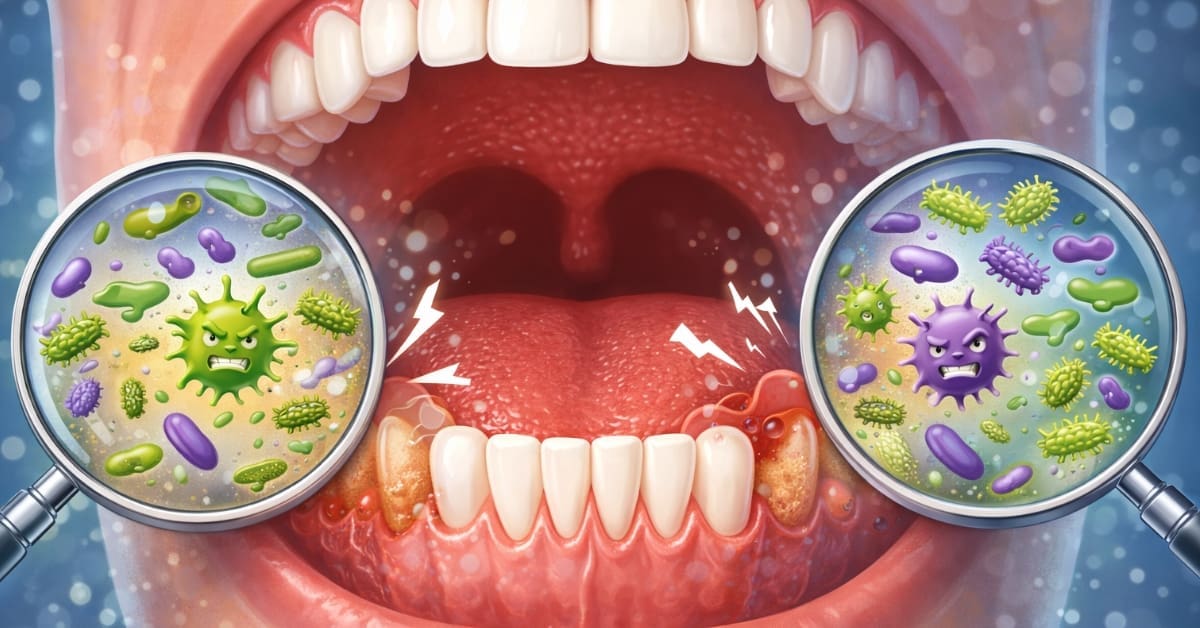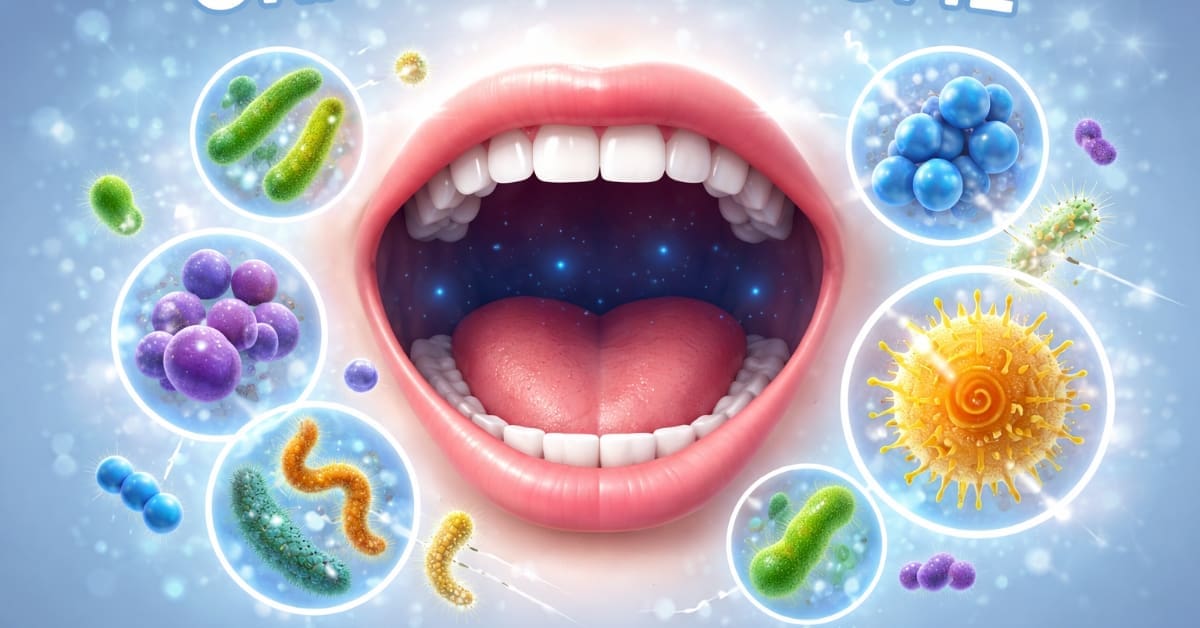7 Essential Oral Care Steps for Optimal Oral Health
Investing in oral care is essential in preventing bad breath, gum disease, and tooth decay. Even simple daily steps can make a big difference in keeping your teeth and gums healthy. Here’s an expanded look at essential steps to promote a healthy mouth and a brighter smile.
Brush Your Teeth

Brushing your teeth twice daily, ideally in the morning and before bed, is fundamental to oral care. Using the proper technique is critical to effective cleaning. According to dental experts, it’s essential to tilt your brush at a 45° angle to your gumline, sweeping or rolling the brush away from the gums. This angle helps remove plaque buildup along the gum line, often contributing to gum disease.
Beyond the gumline, brush all surfaces of your teeth, including the tops, outsides, and insides. And don’t forget to brush your tongue—bacteria and food particles on your tongue can contribute to bad breath and affect overall oral hygiene.
For best results, replace your toothbrush a maximum of three to four months or if the bristles are frayed. Soft-bristled brushes are generally gentler on your gums and enamel, while electric toothbrushes may also be effective at removing plaque.
Floss Daily
While many consider brushing the primary form of dental care and one of the first oral care steps, flossing is equally essential. Flossing removes food particles and plaque stuck between teeth—areas toothbrush bristles can’t reach. Removing these particles reduces bacteria and plaque that can lead to cavities and gum disease.
To floss effectively, use a clean section of floss for each tooth, gently sliding it up and down along the tooth surface and curving it slightly under the gumline. For those who find traditional floss strings challenging, floss picks or water flossers can be effective alternatives. Water flossers use a water stream to remove plaque and particles, making them an excellent choice for people with braces or other dental appliances.
Rinse After Meals
Rinsing your mouth after meals helps to prevent food particles from staying between your teeth. While water is a convenient option, an antibacterial mouthwash offers additional benefits. Rinsing with mouthwash helps reduce bacteria that can lead to plaque buildup and bad breath. It can also aid in cavity prevention, especially if you choose a fluoride mouthwash.
Mouthwash can be beneficial after eating acidic or sugary foods, as it helps to neutralize acids that can weaken enamel. However, waiting 30 minutes after a meal before brushing your teeth is best, especially if you’ve had acidic foods. Rinsing with mouthwash immediately after a meal can help prevent acid erosion.
Eat a Tooth-Friendly Diet
What you eat has a significant impact on your oral health. Eating a balanced diet rich in lean proteins, vegetables, fruits, and dairy products provides your body with essential nutrients for strong teeth and gums. For example, calcium helps strengthen your teeth, while vitamin C promotes gum health.
Reducing your intake of sugary drinks and snacks is also vital. Sugar feeds harmful bacteria that produce acid, which can erode enamel over time. If you consume sugary foods, rinse your mouth with water afterward or follow up with a tooth-friendly snack like cheese or nuts, which can help neutralize acids.
Drink Plenty of Water
Staying hydrated is vital for overall health and plays a role in oral hygiene. Drinking water throughout the day helps wash away food particles, reduce bacteria, and maintain saliva production. Saliva is your mouth’s natural defense mechanism; it neutralizes acids, helps digest food particles, and contains enzymes that fight bacteria.
Drinking fluoridated water, if available, is especially beneficial for oral health. Fluoride helps to strengthen enamel, making it more resistant to decay. If you don’t have access to fluoridated water, consider talking to your dentist about fluoride treatments or toothpaste to help keep your teeth strong.
Schedule Regular Dental Check-ups
Regular dental visits are crucial for maintaining oral health. Dentists and hygienists can identify issues such as plaque buildup, cavities, and early signs of gum disease and provide professional cleanings that go beyond what daily brushing and flossing can achieve. Most dental professionals recommend check-ups every six months, although your dentist may recommend a different frequency based on your needs.
During your dental visit, your dentist will examine your mouth for signs of potential issues, such as oral cancer, which is often easier to treat if detected early. They may also recommend specific products, such as toothpaste with extra fluoride or mouthwash that targets your dental concerns.
Quit Smoking or Using Tobacco Products
Tobacco use is highly detrimental to oral health. Not only does smoking stain your teeth, but it also reduces blood flow to your gums, which makes it harder for them to heal. Smokers also have an increased risk of developing gum disease, tooth loss, and oral cancer. If you use tobacco products, to quit smoking one of the best things you can do for your oral and overall health.
Promote a Healthier Mouth With These Basic Oral Care Steps
These oral care steps can make a big difference in maintaining a healthier mouth. Brushing, flossing, rinsing, eating a balanced diet, and staying hydrated can protect your teeth and gums from decay and disease. Beyond home care, regular dental visits will ensure that your mouth remains as bright and healthy as possible.
At Suburban Essex Dental, we care about you! Contact us today to schedule your cleaning and check-up. Our team is ready to assist you with all your dental needs and help you achieve a bright, healthy smile that you are proud of and lasts a lifetime.
Let’s chat about these essential oral care steps and your overall dental concerns.





